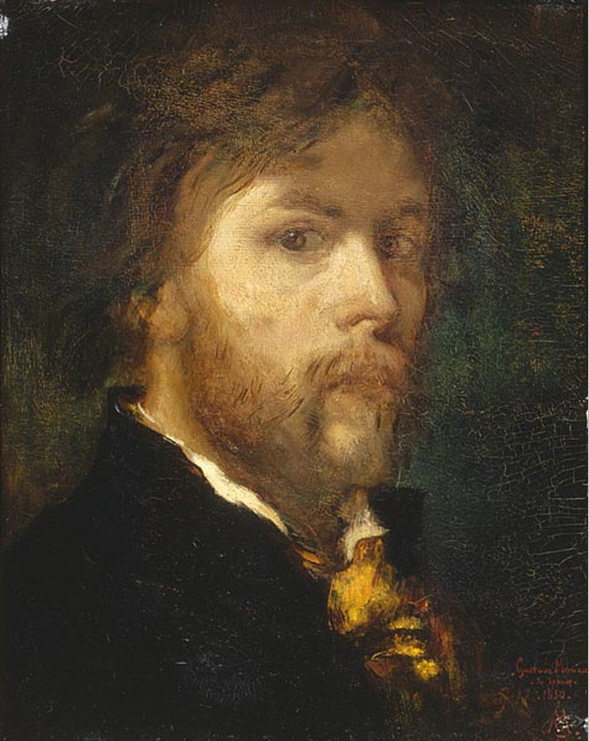Origine: Citato in uno scritto di Georges Rouault; citato in John Berger, Sul guardare, a cura di Maria Nadotti, Bruno Mondadori, Milano, 2003, p. 170. ISBN 88-424-9679-0
Gustave Moreau Frasi e Citazioni
Gustave Moreau: Frasi in inglese
“I am dominated by one thing, an irresistible, burning attraction towards the abstract.”
Origine: Gustave Moreau (1972) by Jean Paladilhe and Josbe Pierre - transl. Bettina Wadia; Praeger, New York, 1972, p. 32
Contesto: I am dominated by one thing, an irresistible, burning attraction towards the abstract. The expression of human feelings and the passions of man certainly interest me deeply, but I am less concerned with expressing the motions of the soul and mind than to render visible, so to speak, the inner flashes of intuition which have something divine in their apparent insignificance and reveal magic, even divine horizons, when they are transposed into the marvellous effects of pure plastic art.
As quoted at the J. Paul Getty Museum http://www.getty.edu/art/gettyguide/artMakerDetails?maker=333&page=1
Notes to his mother, on The Life of Humanity (1884-6) http://www.wikiart.org/en/gustave-moreau/humanity-the-golden-age-depicting-three-scenes-from-the-lives-of-adam-and-eve-the-silver-age-1886, his composition of a ten image polyptych, p. 48 · Photo of its exhibition on the 3rd Floor of Musée National Gustave Moreau http://en.musee-moreau.fr/house-museum/studios/third-floor
Gustave Moreau (1972)
On Salomé, p. 113
Gustave Moreau (1972)
As quoted in "The Many Faces of Gustave Moreau" by Bennett Schiff in Smithsonian magazine (August 1999) http://www.smithsonianmagazine.com/issues/1999/august/moreau.php
